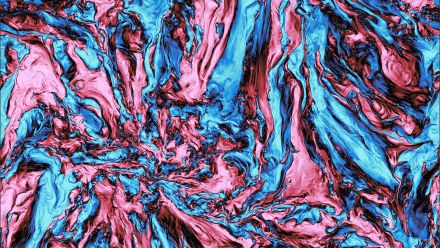Keeping the region secure
Then - The man who helped save the world
Spending your whole professional career as a 'person of interest' may be worrying for some, but not for Professor Des Ball AO.
Ball's academic career has traced Australia's core strategic obsessions: the global balance of power, the US-Australia alliance and US bases in Australia, the country's defence and the creation of an Asian security committee.
As a result, Ball has been in the thick of the action, leading Australian academic defence and security policy discussions for decades. He is also credited with successfully advising US President Jimmy Carter against nuclear escalation in the 1970s.
At the height of the Cold War, Ball was invited to critique US nuclear defence plans. His analysis persuaded the US that its plan to detonate selected Soviet targets in a limited strike would not work in practice and would lead to all-out nuclear escalation.
Carter wrote that "Desmond Ball's counsel and cautionary advice, based on deep research, made a great difference to our collective goal of avoiding nuclear war".
Ball has carved a career out of secret papers. The development of the Pine Gap US intelligence base in the Northern Territory in the late 1960s was a secret until Ball's investigation unveiled the facility. He has had that 'person of interest' label since 1966.
He also raised concerns among the authorities through his research on Australia's signal intelligence, which exposed Australia's secret history of cracking diplomatic cables.
Ball's research has been at the heart of the growth of the Strategic and Defence Studies Centre (SDSC) at ANU. Now 50 years old, SDSC is Australia's oldest, largest and highest ranking academic institute for strategic studies research, education and commentary.
SDSC started in humble circumstances. In 1966, it was set up by Dr Robert O'Neill AO and run solely by him.
Sensing a larger scope, O'Neill convinced the Federal Department of Defence to fund two more positions one of which was on national security to which Ball was appointed.
Using O'Neill's army background, SDSC suggested to the incoming Whitlam Government in 1973 that it should focus on the crunch questions about what to do after the US withdrew from Vietnam. The plans were approved, but Secretary of the Department of Defence Sir Arthur Tange was unhappy with Ball's appointment, given his anti-Vietnam War stance.
The reputation of SDSC grew through the '70s and '80s and began to focus on Asia, as the power of China grew. Ball's work on the Thai-Burma border is world-leading, based on 83 research trips to the area.
Today, the SDSC is Australia's largest body of scholars dedicated to the analysis of the use of armed force in political contexts and academics such as Professor Hugh White AO and Dr Andrew Carr continue to shape policy-making to inform the leadership of the Asia-Pacific region.
Now - The region's power shift
The growth in power of both China and India presents Australia with challenges and opportunities that will shape the future of the country.
According to Director of the Coral Bell School of Asia Pacific Affairs Michael Wesley, the power shift occurring in the Asia- Pacific region comes at an interesting time for Australia.
"My area of fascination has been how Asia is changing and how it's influencing the rest of the world. On top of this, I am passionate about how a small, wealthy Western state like Australia can relate to this change," Wesley says.
"A big cultural challenge is that Australia has benefited from the world being ordered intuitively, from a Western perspective, so it has been easy for it to succeed.
"The world is slowly being reordered with different principles to what we naturally understand. So the challenge is whether we are nimble enough to change when we need to.
"It's the greatest potential for non-Allied powers to have influence over our country since the Second World War and we need to adapt to it."
Wesley, who is also Professor of International Affairs, believes the high-quality Asia-Pacific research being generated at ANU will help the country long into the future.
"With this School, we have a particular combination of international policy disciplines married with extremely diverse expertise in the cultures and regions of the Asia Pacific," he says.
"We have networks across the Asia Pacific that have been built up over the past 70 years and continue to influence the region around us."
Wesley's impressive background includes several academic positions at major Australian universities as well as time at the Lowy Institute for International Policy and the Brookings Institution. He's glad he made the move.
"I always wanted to be at ANU. In my field ANU was the super power. It was, and still is, bigger, better and more powerful than any other university in Australia."




